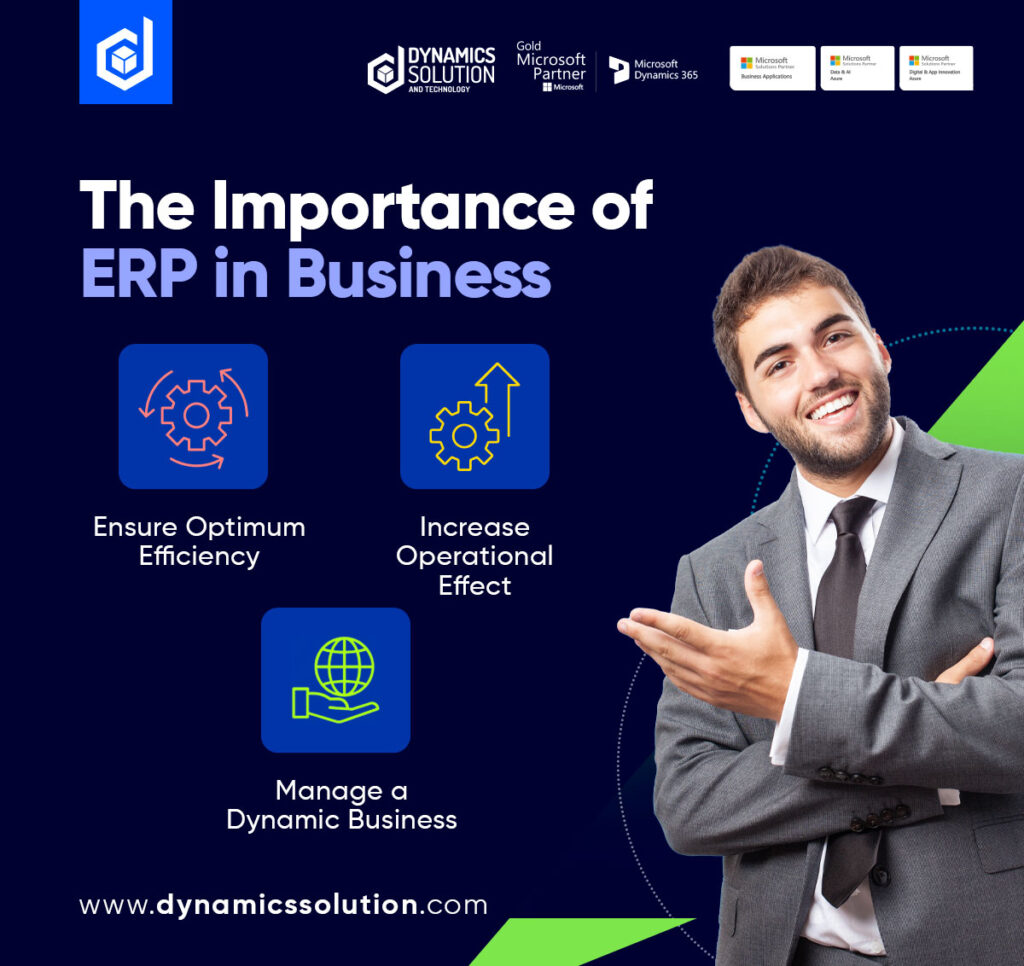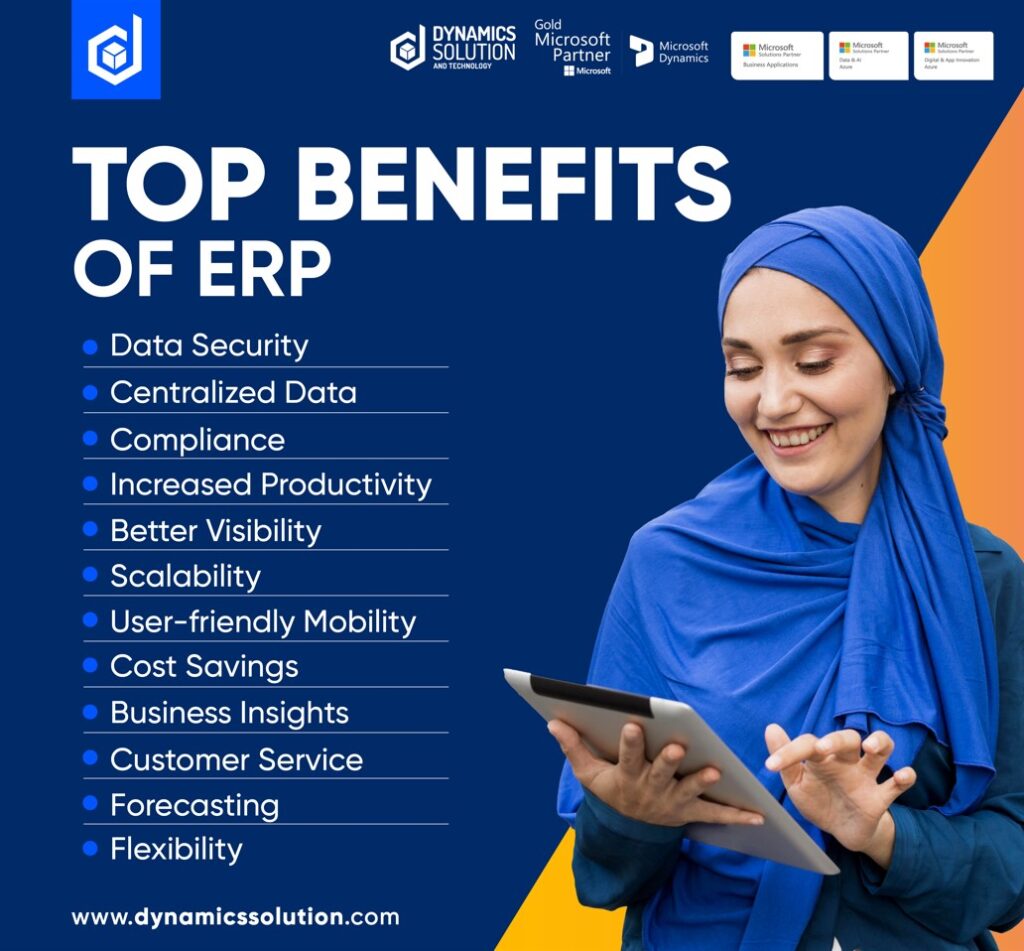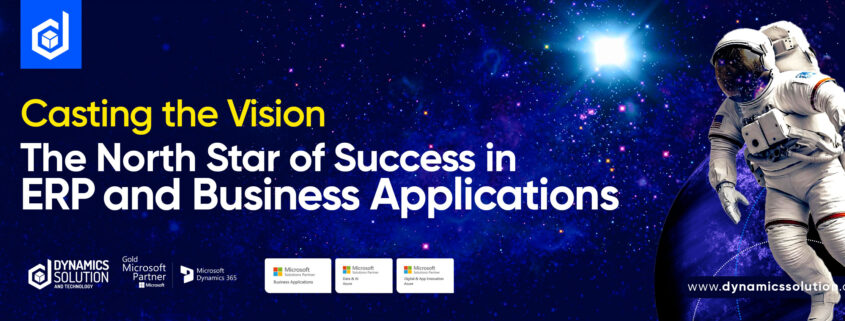Making the right choice when it comes to ERP software is like giving your car the right fuel at the right time. This is because ERP has the potential to influence the performance of your company significantly. Implementing these sophisticated solutions without a clear understanding of your goals can be like setting sail without a destination in mind. In this blog, we’ll explore the importance of knowing your goals for ERP and Business Applications and how they contribute to your organization’s success.
Latest ERP Software Systems
Traditional enterprise resource planning (ERP) solutions consisted of standalone suites that couldn’t communicate with one another. The adoption of new technology or process improvement was hampered due to the need for costly, sophisticated, and customized code to satisfy individual system requirements and specific company needs.
What sets modern ERP software apart is its ability to streamline and integrate poorly managed operations. By bringing together previously weak data sets, you may get valuable insights. Moreover, a data connection is provided within your ERP system and other business applications, such as productivity software, online stores, and customer service programs to improve the overall process efficiency.
The Importance of ERP in Business

Before delving into goal setting, it’s crucial to understand the significance of Microsoft 365 erp business application in the business world. ERP systems are integrated software solutions that manage various aspects of a business, including finance, human resources, inventory, and customer relationship management. They provide real-time data, streamline processes, and enhance decision management, making invaluable tools for modern organizations.
However, the majority of businesses already have a system in place to handle their finances and operations, but traditional systems are unable to move beyond typical business activities or contribute to the growth of a company in the future. Therefore, systems should be flexible enough to accommodate growing businesses and their evolving requirements.
Consider these three benefits to your company from implementing an ERP system:
Assure optimum efficiency:
AI-based solutions give you access to insights that assist you in decision-making and offer opportunities to boost your operational effectiveness.
Advance operational outcome:
Integrating your procedures and data will provide your employees with increased insight and freedom to respond swiftly and effectively, ultimately benefiting your business as a whole.
Manage a dynamic business:
You can anticipate and adjust quickly to any operational interruption or market shift with the aid of many ERP solutions since they are flexible and scalable to meet your demands.
Defining the Goals of an ERP System
Successful ERP implementation begins with a clear definition of your goals. These goals serve as a roadmap, guiding your business toward desired outcomes. ERP goals can encompass a range of objectives, including:
- Efficiency Improvement: Many businesses aim to enhance operational efficiency through ERP implementation. This may involve automating manual tasks, reducing data entry errors, and streamlining workflows. You can use it if you are still following the manual process.
- Cost Reduction: ERP systems can help you control costs by optimizing resource allocation, minimizing waste, and facilitating accurate financial reporting. You just need to implement it according to your business needs.
- Data Visibility: Improved data visibility is a common goal for every business. These ERP systems provide a centralized repository for data, enabling better decision-making.
- Customer Satisfaction: Businesses often use ERP to enhance customer experiences. It is the key to excel if you want to do order fulfillment timely, provide personalized services, and give efficient support to lead to higher customer satisfaction.
Achieving Organizational Goals with ERP
Understanding your ERP goals is essential, but their true value lies in how they contribute to your organization’s broader objectives. Here’s how ERP helps achieve these goals:
- Aligning with Strategic Objectives: ERP systems can be customized to align with your organization’s strategic objectives. Whether it’s expanding into new markets or improving product quality, ERP supports these initiatives.
- Data-Driven Decision-Making: ERP provides access to accurate, up-to-date data. This empowers leaders to make informed decisions, fostering growth and agility.
- Scalability: As your business grows, ERP systems can scale with you. This scalability ensures that your technology investments continue to support your evolving needs.
- Enhanced Collaboration: ERP promotes collaboration across departments. By breaking down information silos, it fosters a unified organizational culture.

In summary, ERP systems play a critical role in realizing your ERP goals. These systems help map out the implementation process, detailing the steps, resources, and timelines required. They also consider potential challenges and mitigation strategies, ensuring a smoother transition.
One exemplary ERP solution is Microsoft Dynamics 365 ERP. D365 offers a wide range of functionalities, from finance and supply chain management to customer relationship management. Its flexibility allows it to align with your specific goals, making it a powerful choice for businesses seeking ERP solutions. You can use Dynamics 365 ERP to optimize your following business functions:
Commerce
A lot of merchants confront numerous obstacles that result in poor efficiency. They can get rid of those obstacles with the help of Dynamics 365 Commerce, which provides a unified commerce solution across traditional offline, online, and in-store channels. Through AI-generated recommendations, customers enjoy a more tailored and streamlined shopping experience while stores boost efficiency, cut down on fraud, and expand their offerings.
Finance
D365 Finance provides an overview of your financial situation via dashboards and AI-driven insights, which you can access whenever and wherever you prefer. In addition to automating routine processes and reducing the need for human data entry, it also facilitates tracking features that aid in meeting your company’s regulatory compliance obligations.
Human Resources
Gone are the days when you have to do every step of payroll and hiring manually. Now you can use data management tools in the ERP to automate these processes. You’ll be in a stronger position to aid in employee retention, recruitment, and empowerment, as well as track employee performance.
Manufacturing
Businesses can better communicate with one another, automate routine tasks with robotic process automation, meet consumer demands, and manage resources with real-time information with ERP. It improves the efficiency of project management, budgeting, and production scheduling.
Supply Chain
Microsoft Dynamics 365 gives you a complete hold on your warehouse stocks. You can do inventory management with the use of dashboards, business intelligence, and even IoT technologies, all of which are features of today’s modern supply chain systems.
Dynamics Solution and Technology, Your Gateway to Business Success
Dynamics Solution and Technology, recognized as a Microsoft Solutions Partner for Business Applications, provides expert solutions on implementing Microsoft 365 erp business application. Our partnership status reflects our commitment to excellence in ERP solutions, making us a valuable resource for businesses seeking to achieve their goals.
We know that when aligned effectively, ERP systems become powerful tools for achieving your goals, driving growth, and ensuring your business’s long-term success. That’s why we make sure you get our services that complete your objectives, whether it is cost reduction, efficiency improvement, or enhancing customer satisfaction.
It’s never too late, so transform your business operations by reaching us and taking advantage of the powerful capabilities of a Dynamics 365 Enterprise Resource Planning system.







